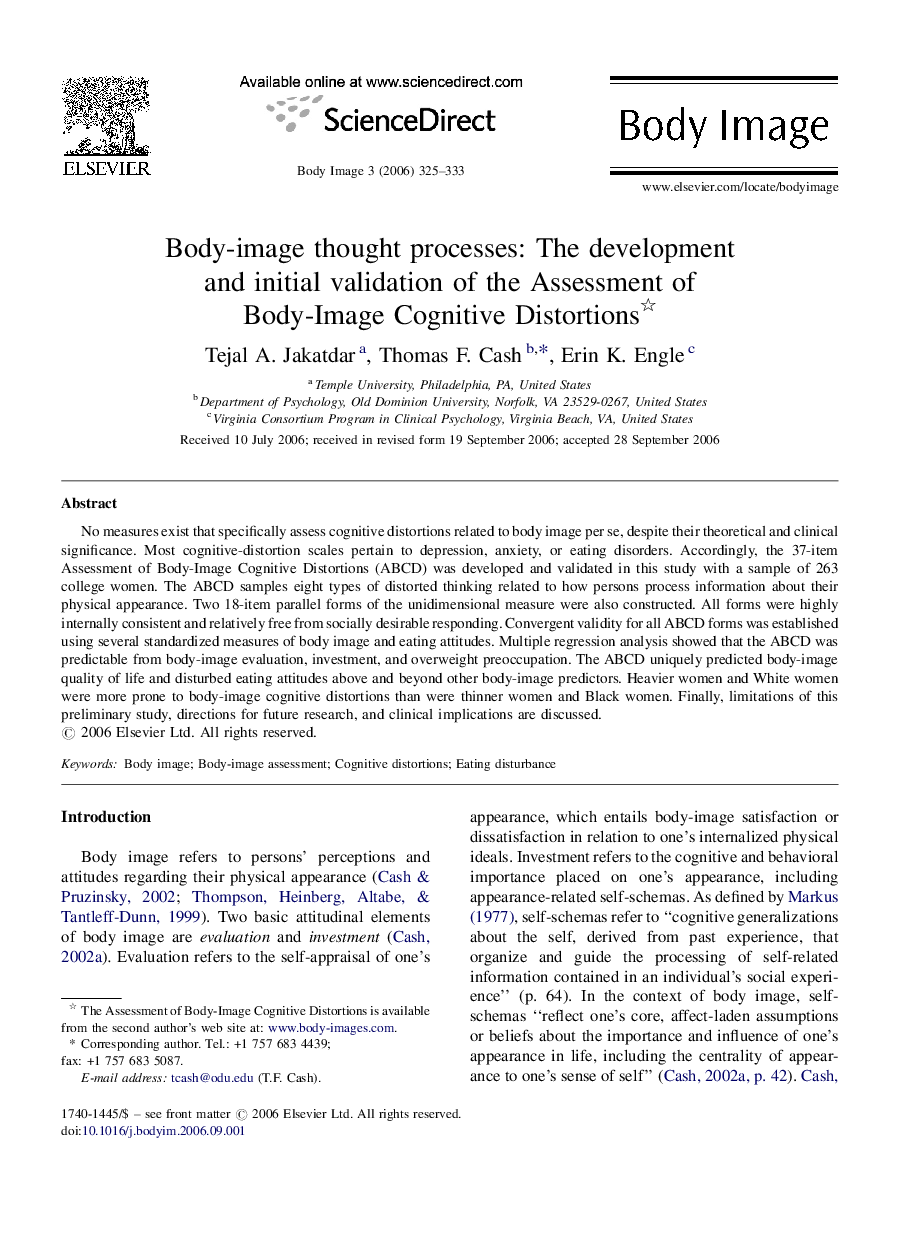| Article ID | Journal | Published Year | Pages | File Type |
|---|---|---|---|---|
| 903424 | Body Image | 2006 | 9 Pages |
No measures exist that specifically assess cognitive distortions related to body image per se, despite their theoretical and clinical significance. Most cognitive-distortion scales pertain to depression, anxiety, or eating disorders. Accordingly, the 37-item Assessment of Body-Image Cognitive Distortions (ABCD) was developed and validated in this study with a sample of 263 college women. The ABCD samples eight types of distorted thinking related to how persons process information about their physical appearance. Two 18-item parallel forms of the unidimensional measure were also constructed. All forms were highly internally consistent and relatively free from socially desirable responding. Convergent validity for all ABCD forms was established using several standardized measures of body image and eating attitudes. Multiple regression analysis showed that the ABCD was predictable from body-image evaluation, investment, and overweight preoccupation. The ABCD uniquely predicted body-image quality of life and disturbed eating attitudes above and beyond other body-image predictors. Heavier women and White women were more prone to body-image cognitive distortions than were thinner women and Black women. Finally, limitations of this preliminary study, directions for future research, and clinical implications are discussed.
